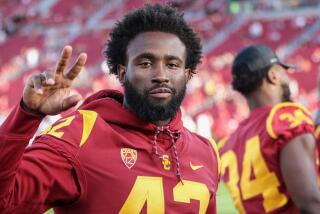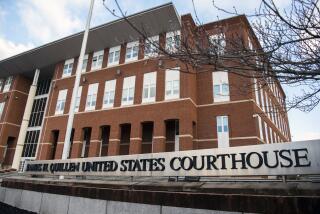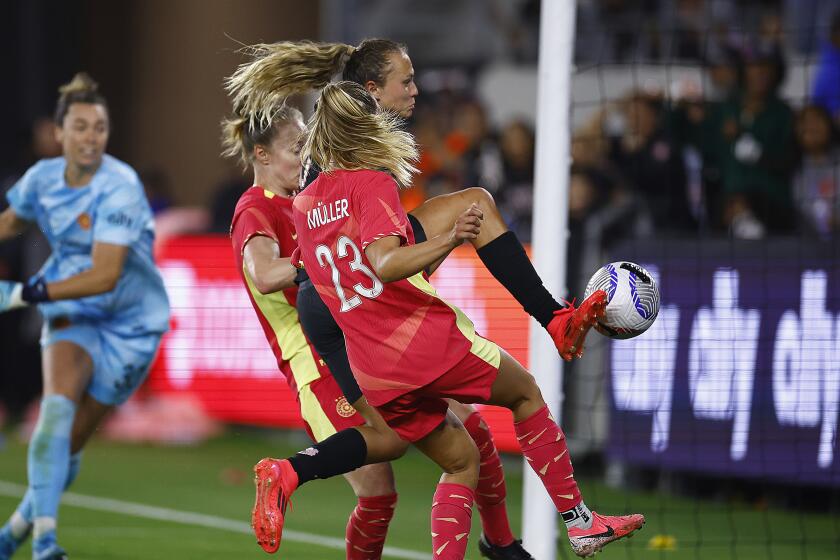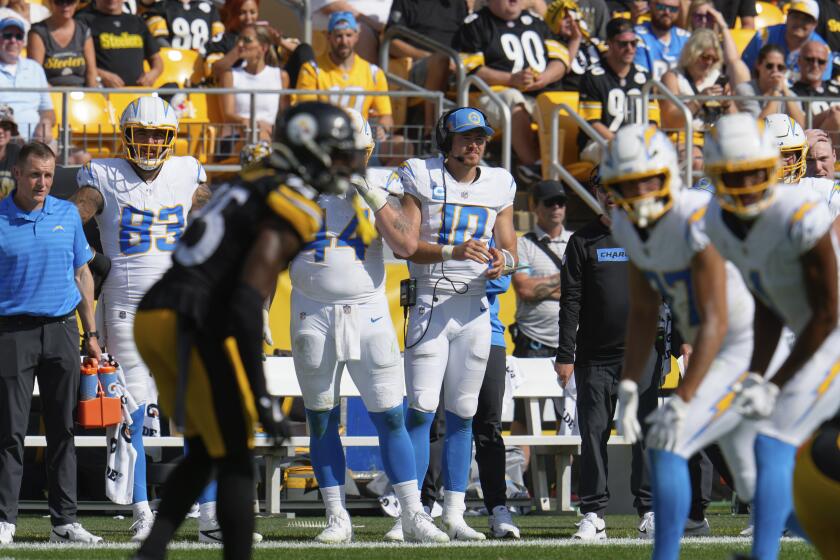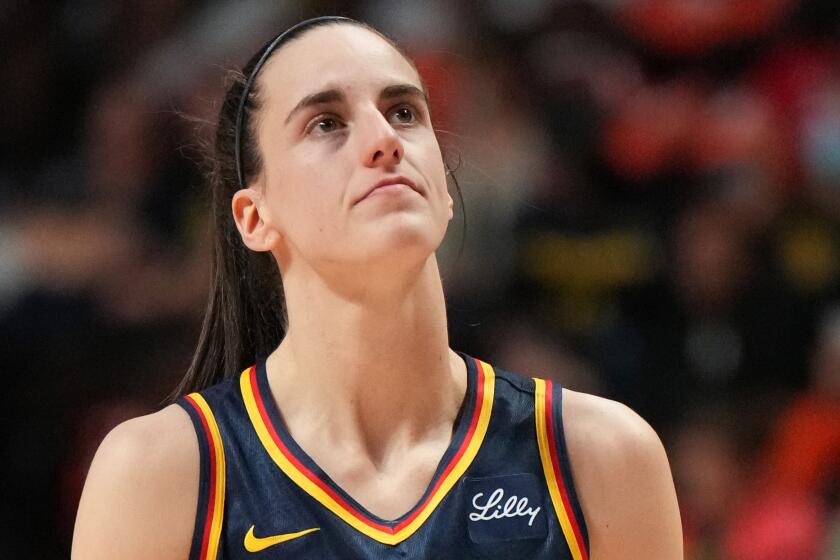Attorneys ask judge to dismiss bribery case against former USC assistant Tony Bland, four others
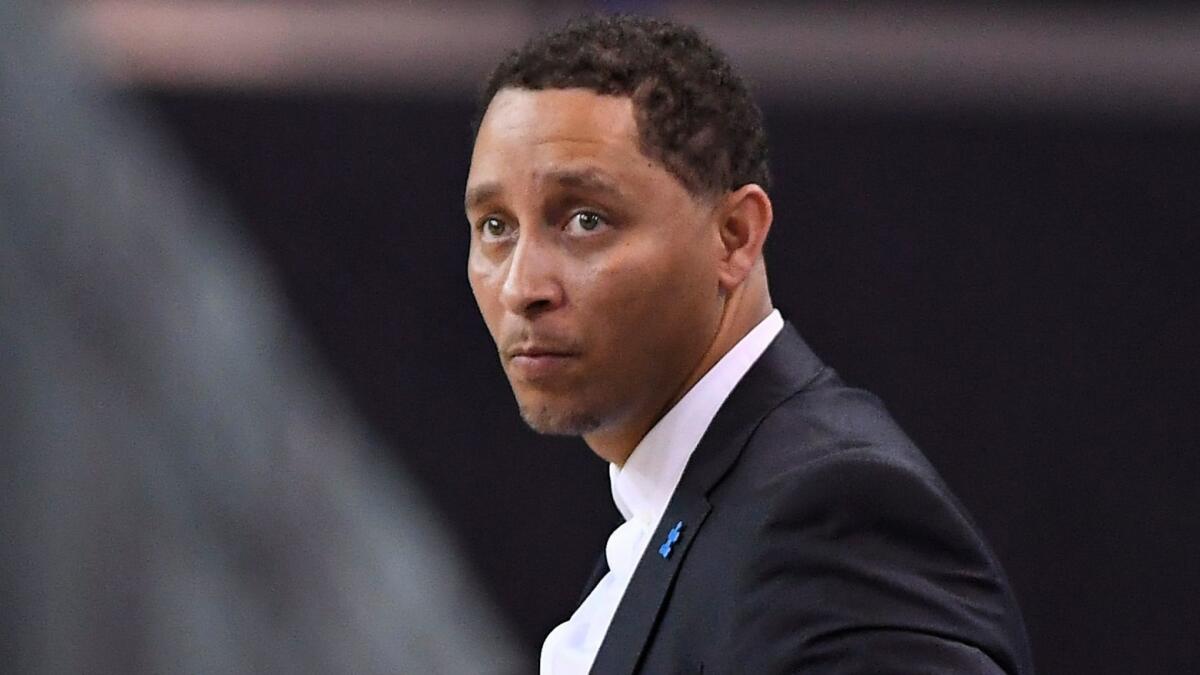
Attorneys for former USC associate head coach Tony Bland and four other men indicted in the federal investigation into college basketball bribery and corruption have asked a judge to dismiss the charges.
The motion filed Monday in U.S. District Court in New York accuses the government of advancing novel legal theories to criminalize violations of NCAA rules.
“Indeed, it is hard to imagine what federal interest is at stake in enforcing a private, nonprofit organization’s amateur rules,” the motion said, referring to the NCAA.
Bland faces four felony charges, including conspiracy to commit bribery and wire fraud. He is scheduled for trial in April along with Christian Dawkins, the would-be chief executive of a sports management company, former Arizona assistant Book Richardson, former Oklahoma assistant Lamont Evans and Adidas employee Merl Code.
All five men, arrested when the investigation became public in September 2017, have pleaded not guilty.
Prosecutors accused Bland of accepting a $13,000 bribe last year in exchange for steering USC players to retain the sports management company launched by Dawkins and financial advisor Munish Sood, who is cooperating with the government, when they turned professional. Bland is also accused of facilitating the payment of a combined $9,000 in bribes to associates of two players connected to USC.
The Los Angeles Times reported last month that bank records showed Dawkins made large cash deposits the same days prosecutors accused him of passing envelopes of bribe money from undercover FBI agents to Bland and associates of the two players.
The motion to dismiss focuses on the government’s accusation that the five men defrauded universities because the alleged bribes led schools to falsely — and unknowingly — certify to the NCAA that the players met eligibility requirements.
“This interpretation, whereby an undisclosed NCAA rules violation coupled with a false certification equals wire fraud, would criminalize nearly every NCAA rules violation …” the motion said. “Under such a theory, an 18-year-old gymnast at a Division I school who accepts $1,000 from a booster and later certifies that there were no rules violations has committed federal wire fraud.
“Simply put, under applicable Supreme Court precedent, the Government cannot turn the NCAA rulebook into an appendix of Title 18 of the United States Code,” the motion added, referring to the main criminal code.
The motion alleged that the purpose of the bribes — if they were made — wasn’t to trick the universities into offering scholarships, but instead to induce the players to use the sports management company as professionals.
“In charging this conduct as a scheme to defraud the Universities, the Government is overstepping its hand,” the motion said.
It also noted NCAA rules violations “occur frequently” and “the conduct they prohibit often is routine.”
The attorneys also moved Monday to suppress all communications the government intercepted through eight wiretap orders issued in 2017. The motion said the first wiretap order, issued April 7, 2017, for Sood’s phone, didn’t identify the Justice Department official who authorized the request and wasn’t supported by probable cause.
“Despite its conclusory assertion of a wide-ranging investigation, the April 7 Affidavit [from FBI special agent Jason Wake] alleged only a single, distinct scheme,” the motion said, “government informant Mr. [Marty] Blazer, a business manager and financial advisor to professional athletes, had offered to pay money to Mr. Evans. …”
The government obtained the first wiretap order for Bland’s phone on June 19, 2017, though the FBI didn’t confiscate or otherwise search the device after his arrest three months later.
The motion said the wiretap order for Bland and other defendants relied on the April 7 document and therefore the government shouldn’t have been allowed to intercept their communications.
Last month, a federal jury in New York convicted Dawkins and two other men of wire fraud and conspiracy to commit wire fraud in a separate case that revolved around payments to associates of players at Kansas, Louisville and North Carolina State.
Twitter: @nathanfenno
More to Read
Go beyond the scoreboard
Get the latest on L.A.'s teams in the daily Sports Report newsletter.
You may occasionally receive promotional content from the Los Angeles Times.

